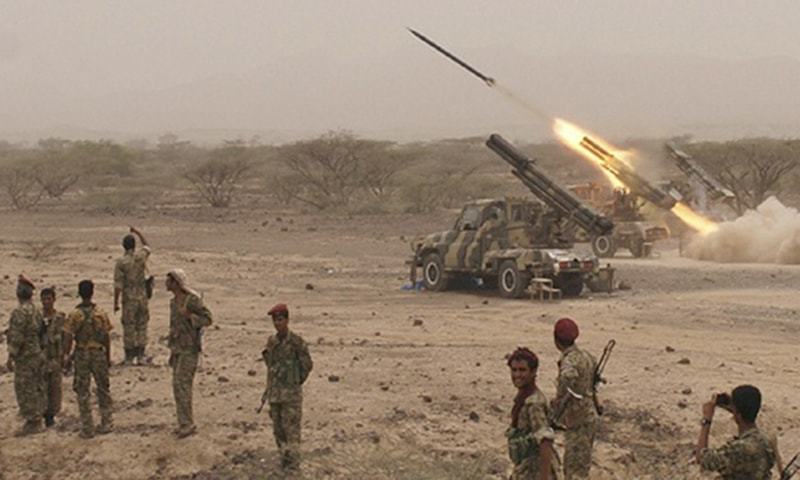Arab frustration with Pakistan

After the resolution, the recriminations. It may have been a stirring riposte to unreasonable demands, but the consensus parliamentary resolution last week was always going to draw criticism from the Arab states that had wanted Pakistan firmly on the side of the Saudi-led coalition attacking the Houthis inside Yemen.
Perhaps the only surprise is that the first broadside has come from the UAE, with Minister of State for Foreign Affairs Anwar Mohammad Gargash using decidedly undiplomatic language to vent his, and possibly his state’s, apparent frustration with the Pakistani decision to not participate in hostilities inside Yemen.
Explore: Parliament calls for neutrality in Yemen conflict
There are at least two things that need to be considered here. First, Mr Gargash’s comments have underscored precisely what was argued in parliament last week: the conflict in Yemen is not about Yemen itself but seen by Saudi Arabia and its allies as part of a much wider struggle to push back against perceived Iranian influence in the region.
That in and of itself is reason enough for Pakistan to abide by the parliamentary resolution — Pakistan’s ties with Saudi Arabia and the Gulf countries cannot and should not come at the expense of a third country with which Pakistan shares a significant border.
Read: UAE minister warns Pakistan of ‘heavy price for ambiguous stand’ on Yemen
What Mr Gargash, and surely his counterparts in Saudi Arabia and other Gulf and Arab countries, may be perceived as seeking to do is to use the Yemen conflict to effectively declare war on Iran. But Pakistan has no reason whatsoever to engage Iran in a conflict, directly or via proxies.
In fact, it is in Pakistan’s interests to broaden ties with Iran, especially in terms of energy cooperation, and to position itself to take advantage of the rollback of sanctions that the US-Iran nuclear deal may allow.
Also read: Resolution on Yemen is Pakistan's internal matter: Saudi minister
If there is any role for Pakistan in the Yemen conflict, it must lie in the diplomatic route that the government has stressed in recent days. Prime Minister Nawaz Sharif is already coordinating closely with the Turkish government and has tried to encourage the OIC and the UN to play a more proactive role — that remains the responsible thing to do.
Second, Mr Gargash’s comments have made it imperative to launch a parallel and urgent diplomatic outreach to Saudi Arabia and its allies in the Yemen conflict.
Their anger and resentment directed at Pakistan may be unjustified, but it should not be ignored. Pakistan has many political, economic and diplomatic stakes in the GCC countries and Saudi Arabia, not least the estimated several million Pakistani expatriates.
Also read: Turkey, Pakistan back peaceful resolution to Yemen conflict
Ensuring the safety and security of Pakistanis abroad and the continuation of an economic lifeline ought to be a priority of the government here. Surely, the Pakistani emphasis should be on the much broader spectrum of ties that exist with the GCC countries and Saudi Arabia and the self-defeating economic rationale of curtailing financial and employment ties with Pakistan. Ultimately, it is no one’s interest to escalate a policy difference over Yemen into wholesale damage to long-standing and close ties.
Published in Dawn, April 13th, 2015
On a mobile phone? Get the Dawn Mobile App: Apple Store | Google Play













































